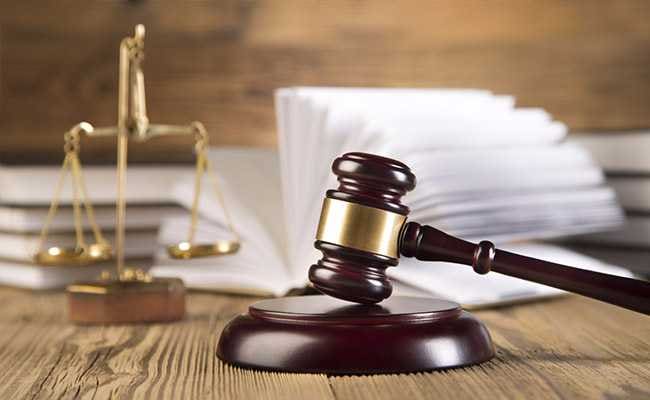
The Union Cabinet Wednesday approved a bill which provides a mechanism for social, economic and educational empowerment of transgenders by defining their identity and rights to prohibit discrimination against them.
The bill will benefit large number of transgender persons, mitigate the stigma, discrimination and abuse against this marginalised section and bring them into the mainstream of the society, an official statement said.
This will lead to inclusiveness and make them productive members of the society, it said.
"The Union Cabinet has approved the proposal to introduce the Transgender Persons (Protection of Rights) Bill, 2019. The Bill will introduced in the ensuing session of the Parliament. The Bill provides a mechanism for their social, economic and educational empowerment," the statement said.
Passage of the Transgender Persons (Protection of Rights) Bill, 2019, which aims at empowering the community by defining and protecting their rights, is one of the priorities of the Social Justice and Empowerment ministry in the first 100 days agenda of the second term of the Narendra Modi government, an official source said.
The bill will bring greater accountability on the part of the central government, state governments and Union Territories for issues concerning transgender persons, besides making all the stakeholders also responsive and accountable for upholding the principles underlying the Bill.
The bill was passed by Lok Sabha in December 2018.
The draft bill without any new amendments was approved by the Cabinet on Wednesday, sources in the ministry said.
According to the bill, a transgender is a person whose "gender does not match with the gender assigned to that person at birth and includes trans-man or trans-woman (whether or not such person has undergone Sex Reassignment Surgery or hormone therapy or laser therapy or such other therapy), person with intersex variations, gender- queer and person having such socio-cultural identities as kinner, hijra, aravani and jogta."
Going by the bill, a person would have the right to choose to be identified as a man, woman or transgender, irrespective of sex reassignment surgery and hormonal therapy. It also requires transgender persons to go through a district magistrate and "district screening committee" to get certified as a transperson.
The committee would comprise a medical officer, a psychologist or psychiatrist, a district welfare officer, a government official, and a transgender person.
The bill prohibits discrimination against a transgender person in areas such as education, employment, and healthcare. It directs the central and state governments to provide welfare schemes in these areas.
Offences like compelling a transgender person to beg, denial of access to a public place, physical and sexual abuse, etc. would attract up to two years'' imprisonment and a fine.
Track Latest News Live on NDTV.com and get news updates from India and around the world

